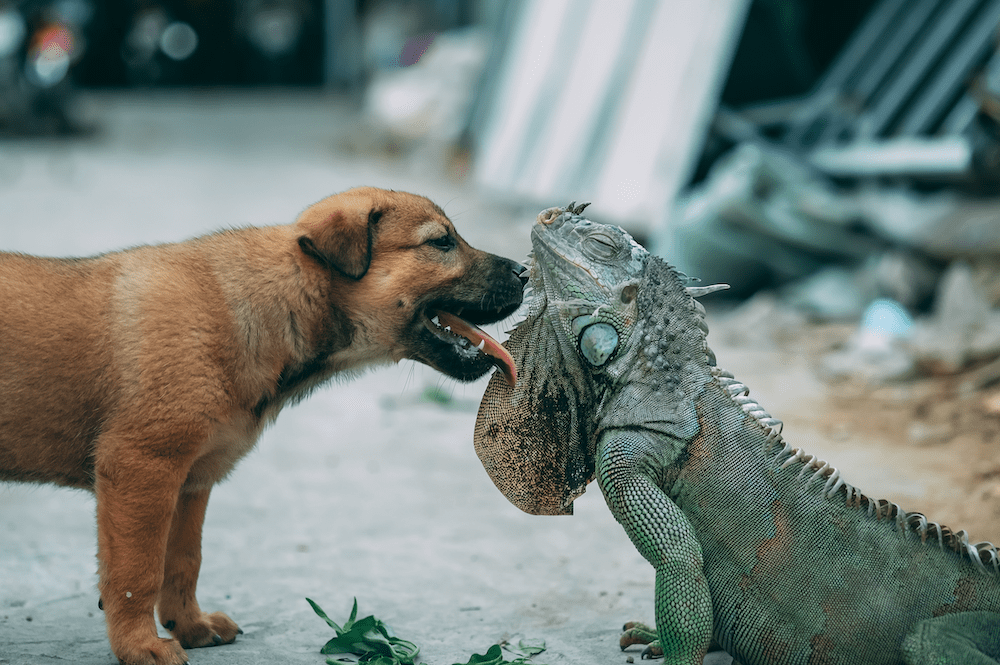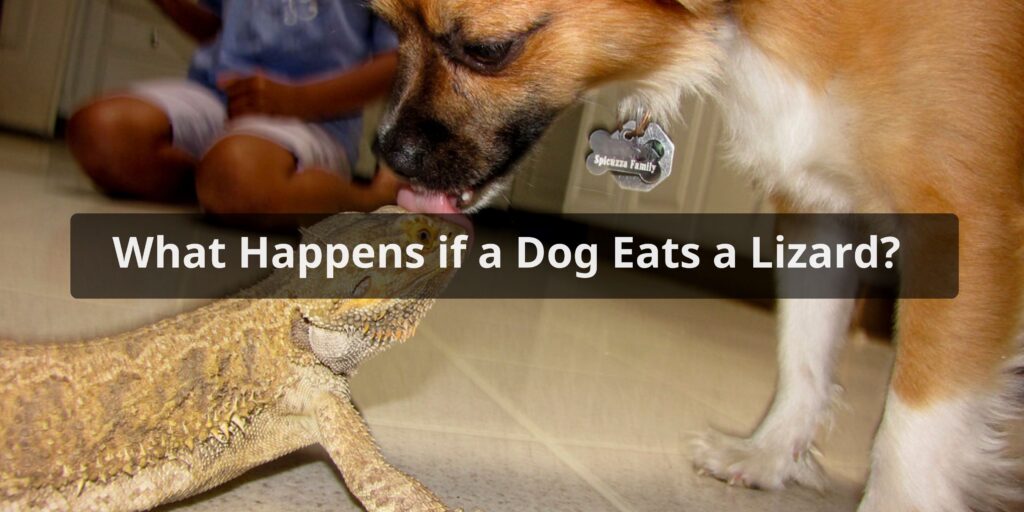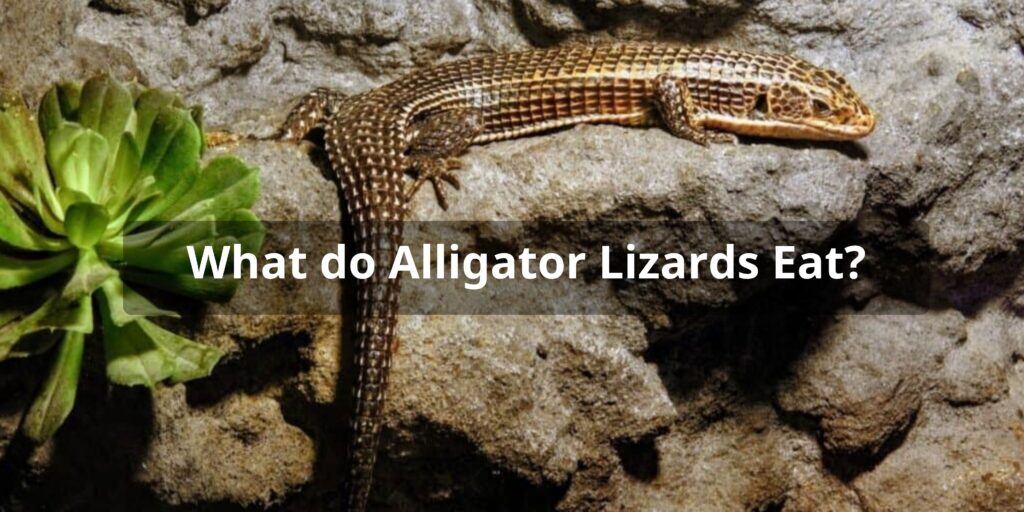Lizards are common backyard critters that many dogs may encounter and even try to eat. While lizards likely won’t cause too much harm to dogs if ingested, it’s still best to try to prevent this from happening. Here’s an overview of what to expect if your dog eats a lizard.
Potential Effects of Eating Lizards
Lizards themselves are not poisonous or toxic to dogs. However, there are a few potential concerns with dogs eating lizards:
- Choking hazard – Lizards have small bones that could pose a choking risk or lead to an intestinal blockage if swallowed. This is especially true for smaller dogs.
- Parasites – Lizards may carry parasites like roundworms or tapeworms that could be passed to your dog.
- Salmonella – Lizards can potentially transmit salmonella bacteria to dogs, though the risk is low. Symptoms include vomiting, diarrhea, and fever.
- Allergic reaction – Some dogs may have an allergy or sensitivity to lizard proteins. This could cause red, itchy skin or gastrointestinal signs.
- Cuts and wounds – If a lizard tries to defend itself, it could potentially scratch or bite your dog. Usually these are minor injuries. Monitor for signs of infection.
So while a lizard likely won’t severely sicken your dog, it’s still best to discourage this behavior to prevent any adverse effects.
Why Do Dogs Eat Lizards?


Dogs have a natural instinct to hunt, dig, and use their mouths to explore their environment. Reasons dogs may try to catch and eat lizards include:
- Prey drive – Many dogs retain their predatory drive to seek out and catch small animals. This includes lizards that may enter their backyard.
- Boredom – Dogs left alone for long periods without stimulation may start chasing lizards for entertainment.
- Hunger – A famished dog with inadequate food may try to hunt lizards or other critters to satisfy their appetite.
- Curiosity – Interest or curiosity can lead puppies and some dogs to mouth, chase, and potentially eat lizards.
- Scent – The strong, unfamiliar scent of a lizard triggers some dogs’ chase instincts. They use their nose to explore.
- Texture – The rough, scaly texture of lizards appeals to some dogs’ need to use their mouth to interact with objects.
So for dogs, eating lizards often stems from normal canine behaviors and drives rather than aggression. But it’s still important to discourage this habit.
Dangers Lizards Face from Dogs
While lizards may not pose significant dangers to dogs if eaten, the opposite is often true – dogs can seriously injure or kill lizards. Potential dangers lizards face from dogs include:
- Bite wounds – Being grasped and vigorously shaken by a dog can inflict serious wounds on lizards.
- Broken bones – A dog’s powerful jaws can easily fracture bones and crush internal organs in small lizards.
- Internal injuries – Even if the lizard’s skin remains intact, internal bleeding or organ damage from a dog attack is possible.
- Death – Many lizards are fragile creatures and dogs can quickly kill them – whether intentionally while hunting/playing or accidentally by stepping on them. Even a gentle-mouthed dog may cause lethal damage.
So while an ingested lizard may only cause minor irritation to your dog, that same encounter could be deadly for the lizard. It’s important to protect backyard lizards from curious canines.
Preventing Dogs From Eating Lizards
If your dog keeps eating lizards in your yard, there are several ways to discourage this risky behavior:
- Supervision – Actively supervise your dog anytime they are around possible lizard habitats like rock beds, wood piles, or dense vegetation. Leave lizards alone if spotted.
- Electronic fencing – Install an invisible electronic fence to keep your dog confined to certain areas and away from prime lizard real estate.
- Physical fencing – Physical fences that lizards can fit through but dogs cannot provides another barrier.
- Leash walking – Keep dogs on a leash when outdoors and redirect their attention if they try to chase a lizard.
- Avoidance – If you know your yard has many lizards, take your dog elsewhere for exercise and bathroom breaks to limit their opportunities.
- Training – Use positive reinforcement training to teach your dog the “leave it” command when they spot a lizard. Slowly reward them for ignoring lizards.
- Remove motivation – Eliminate reasons your dog would hunt lizards – provide adequate food, toys, exercise, and attention. Block access to areas lizards frequent.
With persistence and training, you can curb your dog’s motivation to chase and eat lizards. This will help keep both your dog and the lizards safe. Monitor your dog after any lizard encounters and contact your vet with any concerns.
What to Do if Your Dog Eats a Lizard
If you catch your dog with a lizard or notice symptoms suggesting they ingested one, follow these steps:
- Examine your dog – Check your dog’s mouth and throat for any remaining lizard parts. Look for visible wounds or reaction around the mouth.
- Separate your dog – Temporarily keep your dog away from the lizard area so they don’t eat more. Restrict access if needed.
- Check for symptoms – For the next 24 hours, watch for vomiting, diarrhea, coughing, choking, allergic reaction, or signs of pain. Contact your vet if you observe any concerning symptoms.
- Call your vet – Describe the incident to your vet. They may advise you to bring your dog in for an exam.
- Monitor stool – Check your dog’s stool for the next few days for any remaining bones or parasites. Save a sample if possible. Inform your vet of any abnormalities.
- Provide care – If your dog shows signs of illness, offer bland foods and plenty of water. Treat wounds if needed. Follow vet recommendations.
With proper observation and care, most dogs recover on their own after eating a lizard. But do contact your vet promptly at the first sign of choking, blockage, or serious reaction. Avoidance is best, so take steps to keep lizards out of your dog’s reach.
Conclusion
While most dogs won’t suffer serious consequences from eating the occasional lizard, it’s ideal to discourage this behavior. Choking hazards, parasites, wounds, and even death make lizards risky prey. Monitor your dog, use secure fencing, practice training, and remove motivations to reduce lizard eating. Act quickly if your dog succeeds, and consult your vet if symptoms develop. With caution, you can protect both your pet and local lizard populations.
FAQs About What Happens if a Dog Eats a Lizard
Can eating a lizard make my dog sick?
Yes, eating a lizard can potentially make your dog sick. Some lizards secrete toxins or carry parasites that can cause gastrointestinal distress, vomiting, diarrhea, or even more severe reactions. It’s important to monitor your dog and seek veterinary attention if you suspect any adverse effects after ingestion.
What are the common symptoms if a dog eats a lizard?
If a dog consumes a lizard, common symptoms may include drooling, nausea, vomiting, diarrhea, lethargy, abdominal pain, or changes in behavior. In some cases, more serious symptoms like tremors, seizures, or difficulty breathing can occur. Immediate veterinary evaluation is recommended if you observe these signs.
Should I be concerned if my dog only plays with lizards?
While playing with lizards might not necessarily lead to ingestion, it’s still a concern. Dogs that play with lizards can inadvertently swallow them, potentially exposing themselves to toxins or parasites. Additionally, rough play can harm both the dog and the lizard. Caution and supervision are advised to prevent unintended ingestion.
How quickly do I need to seek veterinary help?
If you suspect your dog has ingested a lizard or is exhibiting any unusual symptoms after an encounter, it’s recommended to seek veterinary help promptly. Timely intervention can prevent complications and ensure appropriate treatment, especially if the lizard is potentially toxic or carries harmful organisms.
Can a dog be poisoned by toxins from lizards?
Yes, certain species of lizards produce toxins that can be harmful to dogs if ingested. These toxins vary in potency and effects, ranging from mild gastrointestinal upset to more severe reactions. It’s crucial to identify the type of lizard and its potential toxicity to determine the level of risk for your dog.



